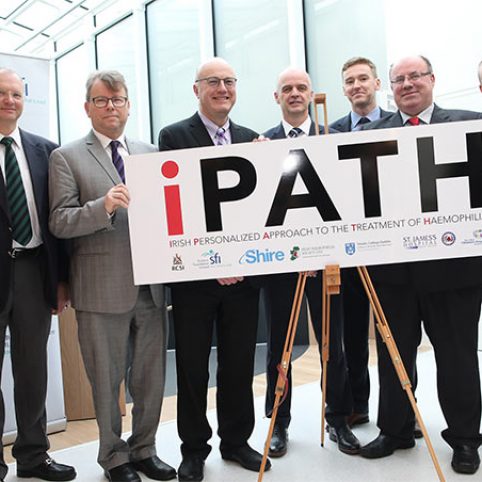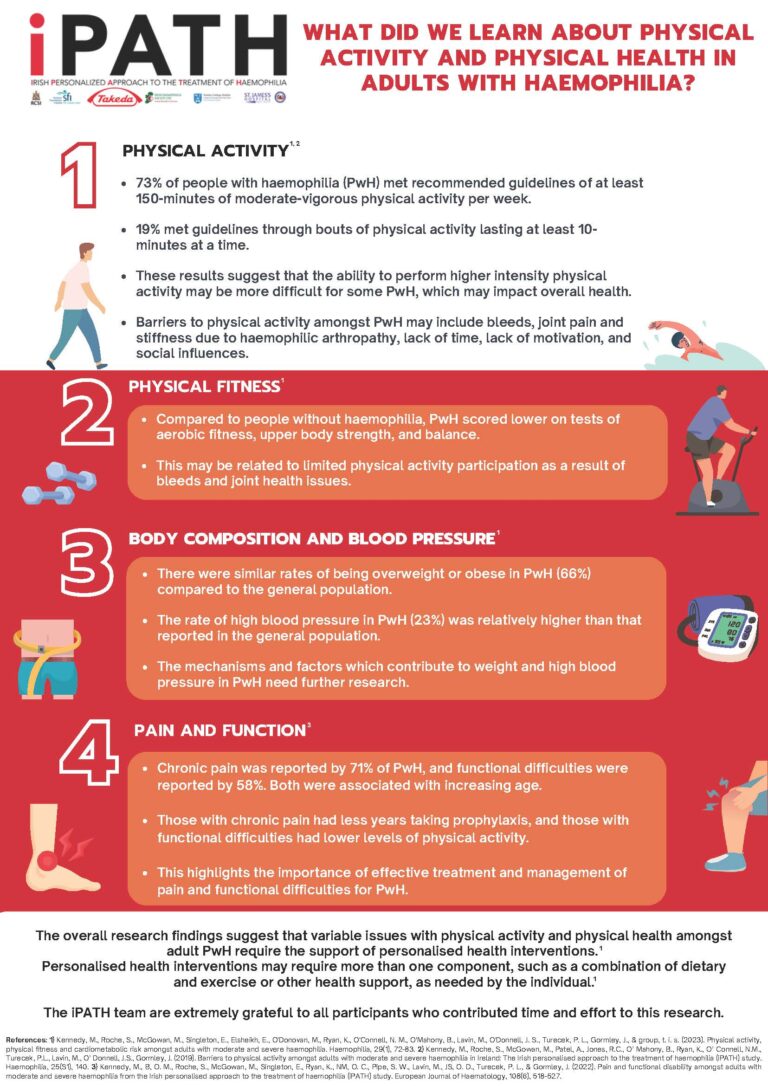Various aspects of physical activity and physical health were examined amongst adults with moderate and severe haemophilia as part of the Irish Personalised Approach to the Treatment of Haemophilia (iPATH) study. This included physical activity participation, physical fitness levels, cardiometabolic risk factors like increased body weight and high blood pressure, as well as rates of haemophilic arthropathy, pain, functional disability and other barriers to physical activity.
Some of the key findings of iPATH were as follows:
- 73% of people with haemophilia met recommended guidelines of at least 150-minutes of moderate physical activity per week. 19% met guidelines through bouts of physical activity lasting at least 10-minutes at a time. These results suggest that the ability to perform higher intensity physical activity may be more difficult for some PwH. (1)
- Compared to people without haemophilia, people with haemophilia scored lower on tests of aerobic fitness, upper body strength and balance. This may be related to limited physical activity participation because of bleeds and joint health issues. (1)
- There were similar rates of being overweight or obese in people with haemophilia (66%) as compared to the general population. (1)
- The rate of high blood pressure in people with haemophilia was relatively higher (23%) than that reported in the general population. (1)
- Chronic pain was reported by 71% of people with haemophilia, while functional difficulties were reported by 58%. Those with chronic pain had less years taking prophylaxis, and those with functional difficulties had lower levels of physical activity. (2)
References
- Kennedy, M., Roche, S., McGowan, M., Singleton, E., Elsheikh, E., O’Donovan, M., Ryan, K., O’Connell, N. M., O’Mahony, B., Lavin, M., O’Donnell, J. S., Turecek, P. L., Gormley, J. (2023). Physical activity, physical fitness and cardiometabolic risk amongst adults with moderate and severe haemophilia. Haemophilia, 29(1), 72-83. https://doi.org/https://doi.org/10.1111/hae.14653
- Kennedy, M., B, O. M., Roche, S., McGowan, M., Singleton, E., Ryan, K., NM, O. C., Pipe, S. W., Lavin, M., JS, O. D., Turecek, P. L., & Gormley, J. (2022). Pain and functional disability amongst adults with moderate and severe haemophilia from the Irish personalised approach to the treatment of haemophilia (iPATH) study. European Journal of Haematology, 108(6), 518-527. https://doi.org/10.1111/ejh.13763
Learn more about the findings of the iPATH study and further research into physical activity by opening the following presentation. Dr. Megan Kennedy delivered this presentation at our 2023 October Conference.

